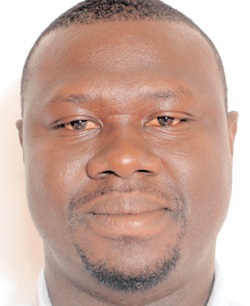

Anywhere from 60 to 80 percent of women will experience uterine fibroids at some point in their lives.
They can be as small as a dime or bigger than a softball. There can be just one or a baker's dozen. And tons of women have them. We're talking about uterine fibroids—which you can now see photos of all over Imgur and Reddit.
According to Dr. Suzanne Fenske, M.D., assistant professor of obstetrics, gynecology, and reproductive science at Mount Sinai, anywhere from 60 to 80 percent of women will experience uterine fibroids at some point in their lives.
These benign tumors, which often occur in premenopausal women, can be found inside the uterine cavity, inside the uterine wall, and even on the outside of the uterus. In most cases, uterine fibroids don't cause any distressing symptoms and can be monitored at yearly well-women visits. But if the fibroids are large and start to cause symptoms, or if a woman is trying to have children, removal is often recommended, Fenske says.
That's apparently where Reddit and photo-sharing sites like Imgur come in. Perhaps to bond over a common woe or to simply show others the source of their pain, women are posting photos of their extracted fibroids within "fibroid communities" online for all to see:
“We know they're really common, but we don't know exactly why women get them,” Fenske says. Possibly, there is a genetic component involved. “Often we see mothers and daughters who get fibroids, or sisters who get them, too. But we're not sure exactly why.”
Although uterine fibroids are incredibly common, many women aren't aware they have them, since they are often small and asymptomatic. The larger they grow, however, the more likely they can be detected during a vaginal exam at the ob-gyn's office, and the more likely they can cause symptoms such as heavy menstrual bleeding and pain during intercourse. These are called “bulk symptoms,” says Fenske, and they can also include pelvic pain, pressure, urinary frequency, constipation, and more. For some, fibroids can even affect a woman's chances of getting pregnant, she says.
“Fibroids don't cause infertility, but if you have them in the cavity of a uterus where a baby would grow, then that can affect the ability of an egg to implant or a placenta to grow,” Fenske says. Fibroids on the outer or inner wall of the uterus, however, have no effect on pregnancy.
“For bulk symptoms, birth control pills and IUDs can help control heavy bleeding, if that's the main complaint,” says Fenske. To relieve pain and pressure, however, surgery is the only known way to get rid of them. “It can be done like a traditional surgery with an incision or minimally, laproscopically,” says Fenske. The only way to guarantee that the fibroids won't grow back is a total hysterectomy, however—something that's reserved only for the most extreme cases.
Although uterine fibroids are typically no big deal, in very rare cases what looks like a uterine fibroid could actually be a cancer called leiomyosarcoma. However, Fenske says, it's relatively easy to tell the difference between a malignant tumor and a benign one.
“It's extremely rare to have leiomyosarcoma in younger women,” Fenske says. “If you're post-menopausal and you have fibroids that are growing, that's worrisome. Another concerning feature is that if a fibroid that rapidly grows. If a patient comes to me with something doubled in size within six months, that's not normal.”
All in all, Fenske wants women to know that they're very common and only need to be managed if they're causing fertility issues or very large and causing bulk symptoms. If that's the case, and if Reddit is any indication, it's a huge relief to have them gone.
Anywhere from 60 to 80 percent of women will experience uterine fibroids at some point in their lives. Read Full Story





















Facebook
Twitter
Pinterest
Instagram
Google+
YouTube
LinkedIn
RSS